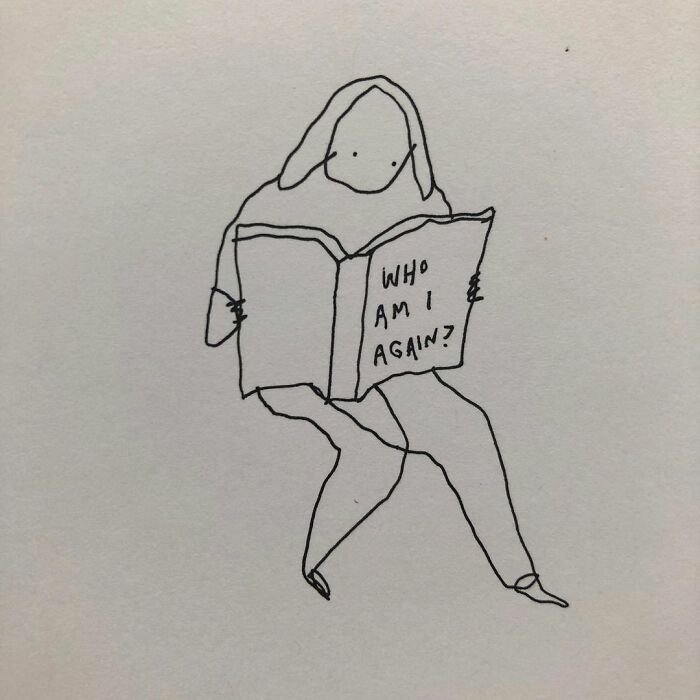imposter syndrome
““You should just be a lawyer; you would make a great one””
7-year-old me was ecstatic when she mistook this backhanded compliment from someone she so dearly looked up to. I mean, how often do you get a compliment after a heated argument huh?
That was possibly the most censored way anyone has called me an argumentative bitch, simply for wanting to be heard and acknowledged. This was going to be one of the many ways I would be ridiculed for taking up space and “not knowing my place”.
This phrase is still very prevalent in my daily life 10 years later, except now the edge of pure disgust and cut-throat irritation is not hidden behind a sickly-sweet smile, but rather served with dirty looks and comments about “praying for the man I will marry”.
Source: https://pin.it/6rr3iSC
Even when I use these experiences to fuel my dreams and aspirations, deep down it chips away at my confidence when I’m finally making progress- it’s as if I myself resent my audacity to reach so high, to dream so big, to work so hard and achieve what I truly deserve. I know with all my heart that versions of my singular experience are relatable to multitudes of you who are reading this.
If you’re reading this, we both know you are no stranger to imposter syndrome and what it entails. However, the media and the world only shine light to the same end of the spectrum- where you feel like you don’t belong in the place you have worked so hard to get to. Yet, as a woman of colour, is that the only sprout of emotion or experience we carry?
“Our experiences and stories as BIWOC when it comes to imposter syndrome and its hardships are overlooked. Almost as if we don’t exist. ”
Source: https://pin.it/34QbYQ4
Not taking credit and feeling out of place is the only definition or understanding of imposter syndrome that the world tends to educate others on, but what about the other side of its effects?
What about the nights spend staring at your computer, forcing yourself to put off every possible opportunity you get because you can’t even imagine yourself to be worthy of a chance in the first place?
What about constantly downplaying your own achievements and talents in front of others and even yourself that you can’t physically bring yourself to acknowledge your hardships?
“As if everything- every day and night spend struggling and questioning yourself and your capabilities, every subtle comment and backhanded compliments from our families and communities- were nothing but merely the outcome of a delusional mind, a victim complex, and the need for attention.”
Source: https://pin.it/yUUmYTz
The crippling weight of the expectations and cultural influence alongside the community’s disregard of your accomplishments and future simply because you are a woman of color is beyond overwhelming and heart wrecking.
Because “at the end of the day, it doesn’t matter because you will end up raising a family, which will take up most if not all of your time and effort”.
So, when you finally end up achieving the dreams that you worked so hard for, you constantly feel guilty for wanting something you were forced to give up in order to get where you wanted to be.
“You feel guilty for succeeding, for winning against every challenge that was in your way. ”
Source: https://pin.it/6q0P9GI
As a first gen child of immigrants, the oppressive weight of expectations and duties you carry multiply exponentially with the additional presence of sexism and misogyny rooted deep within the foundation of cultural history.
Now you are also being constantly labeled as bitchy or difficult merely for wanting to get your point across in a discussion without being interrupted or disrespected by both personal and intellectual means around anyone.
“You are the fruit of generations of hard work and success, yet your simple identity as a WOC drags you ten steps back.”
All of these nonsensical setbacks cause us to sometimes lose ourselves and the essence of who we really are. The mountain of struggles and responsibilities we carry as WOC slow us down in our race of life and it’s truly not your fault.
You deserve everything that you have achieved and even when every single soul in the world tells you otherwise, you have to believe that your worth is imminent. However, it’s near impossible when the world and its circumstances have rewired and forced you to think otherwise.
It’s a chilling universe full of “you’re worthless” and “you don’t deserve anything” with never-ending rotations around the hating sun of discouragements and self-doubts.
Source: https://pin.it/7xzALbD
The question is, how do we deal with this constant ripping open of the wound? How do we change the course of the experiences of our fellow women of color when it comes to visibility and representation in imposter syndrome awareness and education?
The first and foremost step is to acknowledge your own unique experiences and hardships you face that turn your tables around. We need to be able to communicate and understand the easily missed signs and aspects of imposter syndrome in order to make a difference in both our own and others’ lives.
Let’s be honest here, it’s a hard sport trying to be a woman of color in a western society, where the expectations and cultural diaspora you carry as a first-generation immigrant or child of immigrants weigh you down alongside the racism, sexism, and misogyny in almost every aspect of life.
“Be the steppingstone of a silent yet strong revolution. A revolution for representation. ”
We have to break this cycle. We have to be the change we dreamed of having. We have to build a support system that understands, acknowledges, and supports the struggles of imposter syndrome as a WOC.





